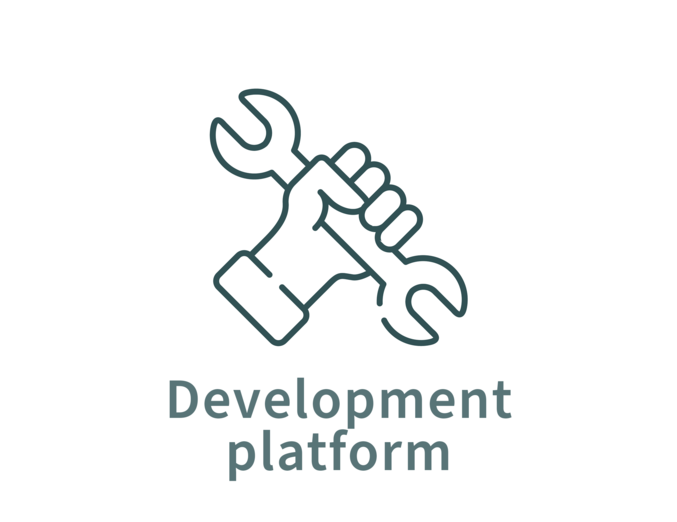The Development Platform: An Essential Tool
Development platforms are essential tools that are used to develop both proprietary and open source software products. These platforms provide access to services that developers and project managers can then use to manage and carry out software projects.
Functionalities provided by development platforms often contain tools that automatically carry out certain processes. These are broadly referred to as "continuous integration" and/or "continuous deployment" processes, as they continually integrate ongoing changes into the existing source code. As a result, these changes happen in small, more easily tracked units, and can be more easily managed.
Another core functionality of a development platform is to "deploy" or transport the desired version of a software product to the corresponding server infrastructure. By using semi- or fully automated deployment systems in all phases of classic software development (development systems, test systems, production systems), users can also take advantage of considerable synergy effects, which make it easier to react to changes in a more agile manner.
In addition to the functionalities already mentioned, development platforms often allow users to run tests on the software processes developed using the platform. These can range from so-called "unit tests", which are run to check the functionality of clearly defined and isolated parts of the program code, or to enact more complex test scenarios to examine interactions among different software components. Some development platforms can be used to perform so-called "end-to-end" tests, and even in conjunction with other tools. The tests in this category enable the user to carry out realistic, holistic testing on all components of a software product. For this purpose, user interactions such as mouse clicks or keystrokes are automatically introduced, simulating the real-life use of the application.
Many developers must often work at the same time on comprehensive and long-term digitalisation projects, placing significant demands on the processes and systems being used to create the necessary software components. Defining and using common working methods is an important key to success, in this case. Development platforms can be used to efficiently overcome these challenges, because they offer access to tools that automatically and regularly check compliance or provide suggestions for correcting issues, as they arise.
Altogether, these factors make development platforms an essential tool for continuously ensuring quality and efficiency in digital projects. As an added bonus, they serve as a sustainable foundation that promotes inter-university collaboration in digitalisation.
We warmly welcome you to check out and participate in our Development Platform!

c Kirill Smyslov_istock
